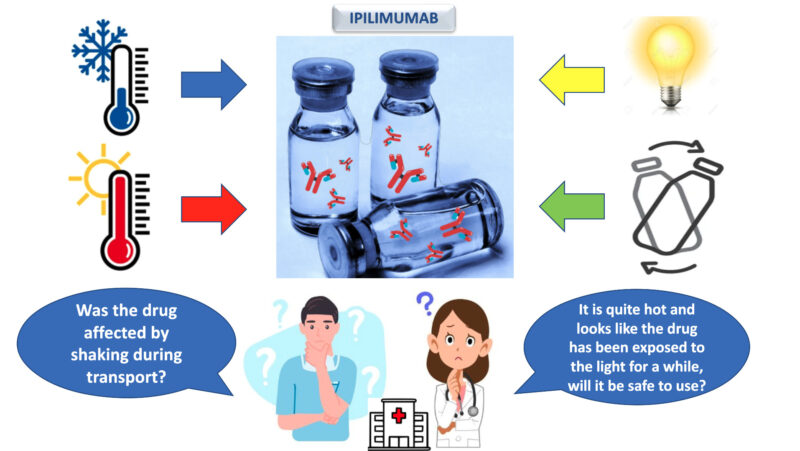
Cancer is one of the main causes of death in the world today. It is a disease involving body cells that have become immortal, so enabling them to grow rapidly, accumulate, and even invade other areas of the body.
Ipilimumab is a drug designed to treat cancer. It is an antibody that recognises a protein (called CTLA-4) in the human body, so boosting our immune system’s ability to destroy cancer cells.
These types of medicines have very high costs for healthcare systems and are usually administered in hospitals. Safe handling of these medicines in the hospital is an important issue, because as proteins they are very sensitive to the conditions to which they may be exposed during handling, storage or transport. For all these reasons, in this research we studied the stability of ipilimumab and its activity when subjected to a range of conditions that can arise in hospital settings, such as shaking, an increase in temperature or light exposure. In this way, we can provide healthcare professionals with the necessary information for the proper handling of ipilimumab, so as to ensure its safety and efficacy. Furthermore, the high price and the short stability of these drugs for administration to patients (around 24h) leads to the generation of many leftovers which, if studied using different analytical approaches, could be reused in a safe and effective way. Research of this kind could therefore create direct savings for the Public Health System and perhaps increase the number of treatments with these drugs.
Keywords: Cancer, drug, ipilimumab, stability.
Directed by: Natalia África Navas Iglesias
Leave a Reply